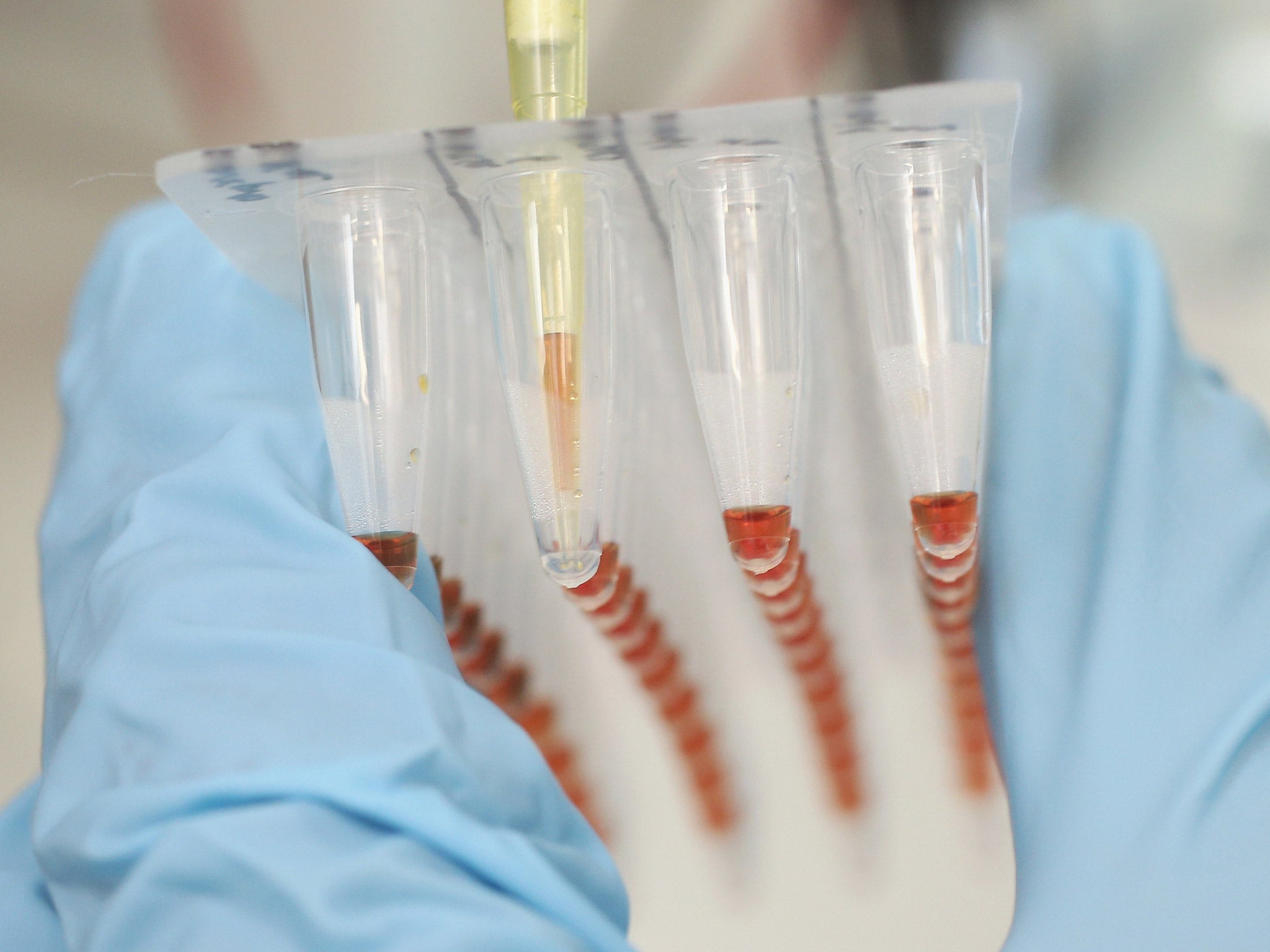'DNA factory' opens at Imperial College London
The foundry will give a significant boost to the fledgling but rapidly-developing world of synthetic biology

Your support helps us to tell the story
From reproductive rights to climate change to Big Tech, The Independent is on the ground when the story is developing. Whether it's investigating the financials of Elon Musk's pro-Trump PAC or producing our latest documentary, 'The A Word', which shines a light on the American women fighting for reproductive rights, we know how important it is to parse out the facts from the messaging.
At such a critical moment in US history, we need reporters on the ground. Your donation allows us to keep sending journalists to speak to both sides of the story.
The Independent is trusted by Americans across the entire political spectrum. And unlike many other quality news outlets, we choose not to lock Americans out of our reporting and analysis with paywalls. We believe quality journalism should be available to everyone, paid for by those who can afford it.
Your support makes all the difference.The brave new world of synthetic biology has taken a major step forward as the UK opened a new DNA factory – manufacturing genetic components that will be used to tackle everything from global warming to vaccines.
Synthetically creating the right DNA formula – for example to artificially produce penicillin – is an extremely laborious process when done manually, as scientists painstakingly try out numerous combinations of genes from various organisms before finding the combination that works.
But the opening of the £2 million Foundry at Imperial College London should speed up the process immensely through a new automated lab that can run thousands of experiments simultaneously.
This should help identify the winning combination of genes needed for a given task between 10 and 100 times as quickly as a human scientist would using the traditional apparatus of pipettes and Petri dishes.
The foundry will give a significant boost to the fledgling but rapidly-developing world of synthetic biology in which microbes such as bacteria, viruses and funghi – or larger organisms – are genetically manipulated for a wide range of functions such as generating energy and creating drugs to fight disease.
“This is a step change in our ability to design and build new genetic components which we can then put into cells – which then act as little microbial factories producing a variety of chemicals,” said Professor Paul Freemont, head of molecular biosciences at Imperial College.
The genes contained in DNA act as an instruction manual telling the cells how to make the various proteins needed to build a body.
Synthetic biology works by mixing and matching genes from different microbes and injecting the resulting DNA into simple, harmless cells, such as yeast cells.
“DNA is a natural instruction telling the cell to do something. But in synthetic biology we can design sections of DNA which do not exist in Nature,” said Professor Richard Kitney, also of Imperial College. “When you put those into the cell it does something you want it to do rather than what it would do naturally. Things like producing chemicals or new types of drugs or vaccines,” he added.
The Government has welcomed the Foundry after identifying synthetic biology of one of the eight ‘great technologies’ in which it believes the UK can excel.
Join our commenting forum
Join thought-provoking conversations, follow other Independent readers and see their replies
Comments